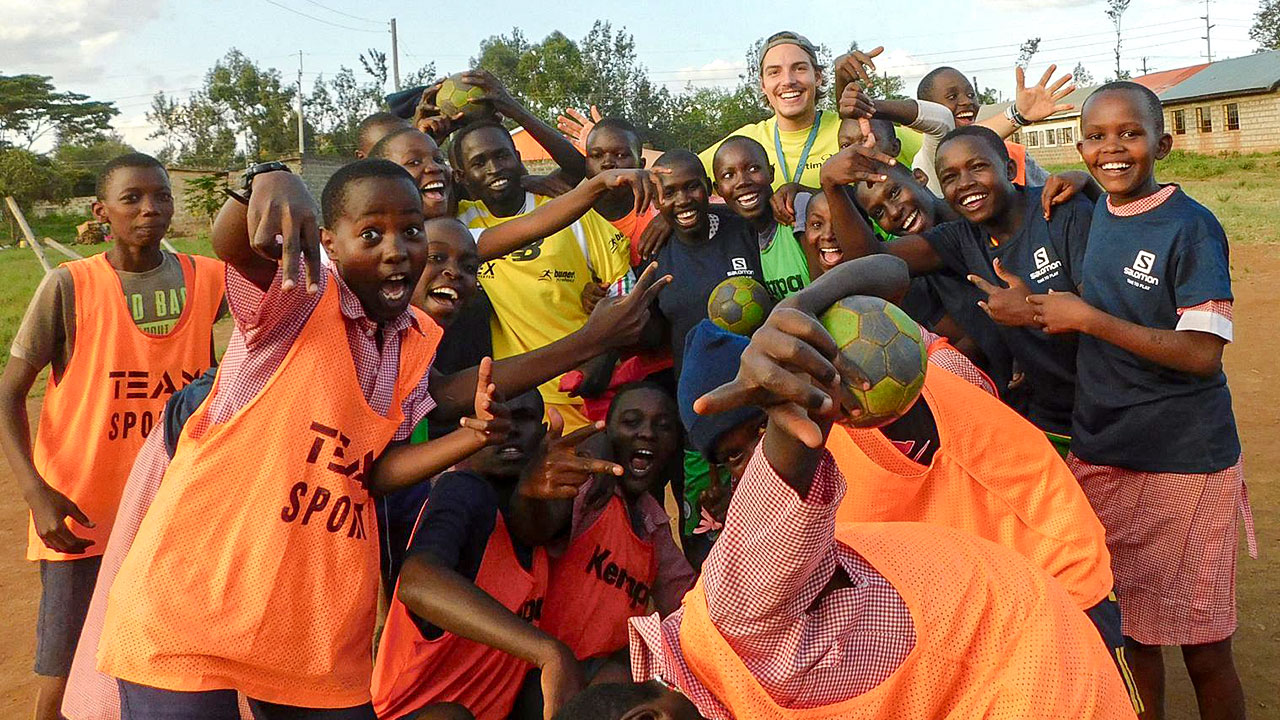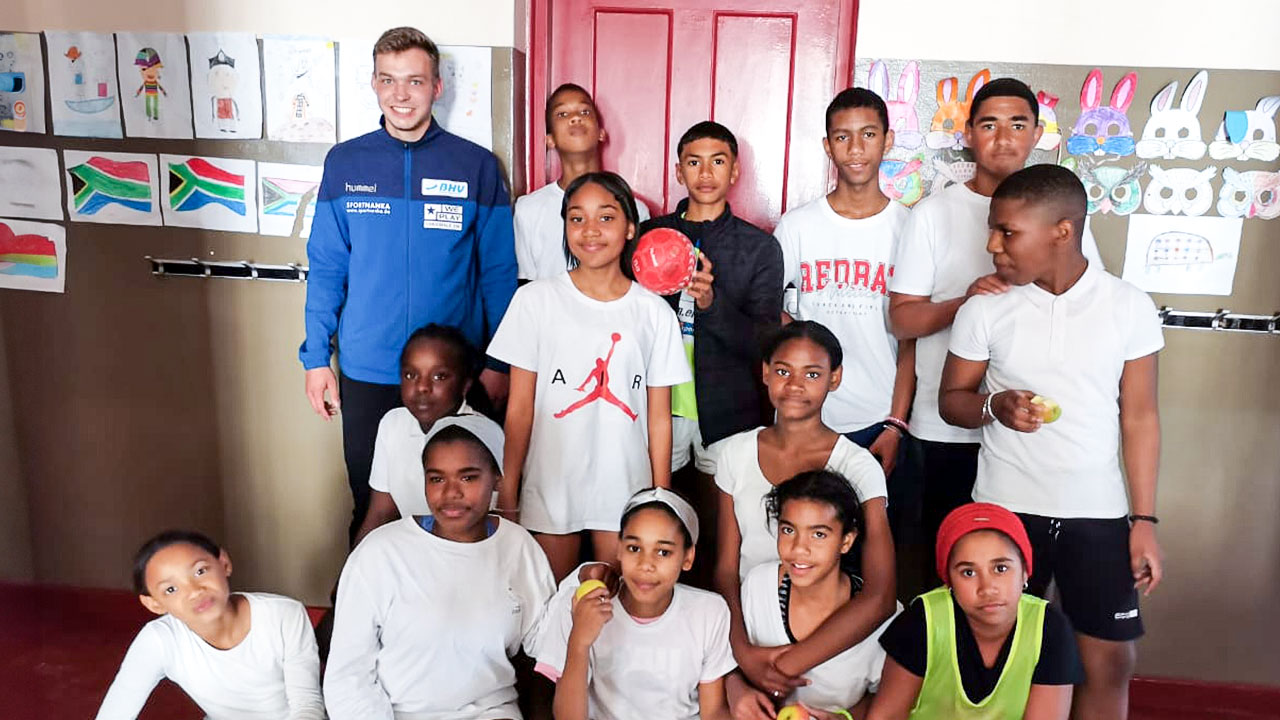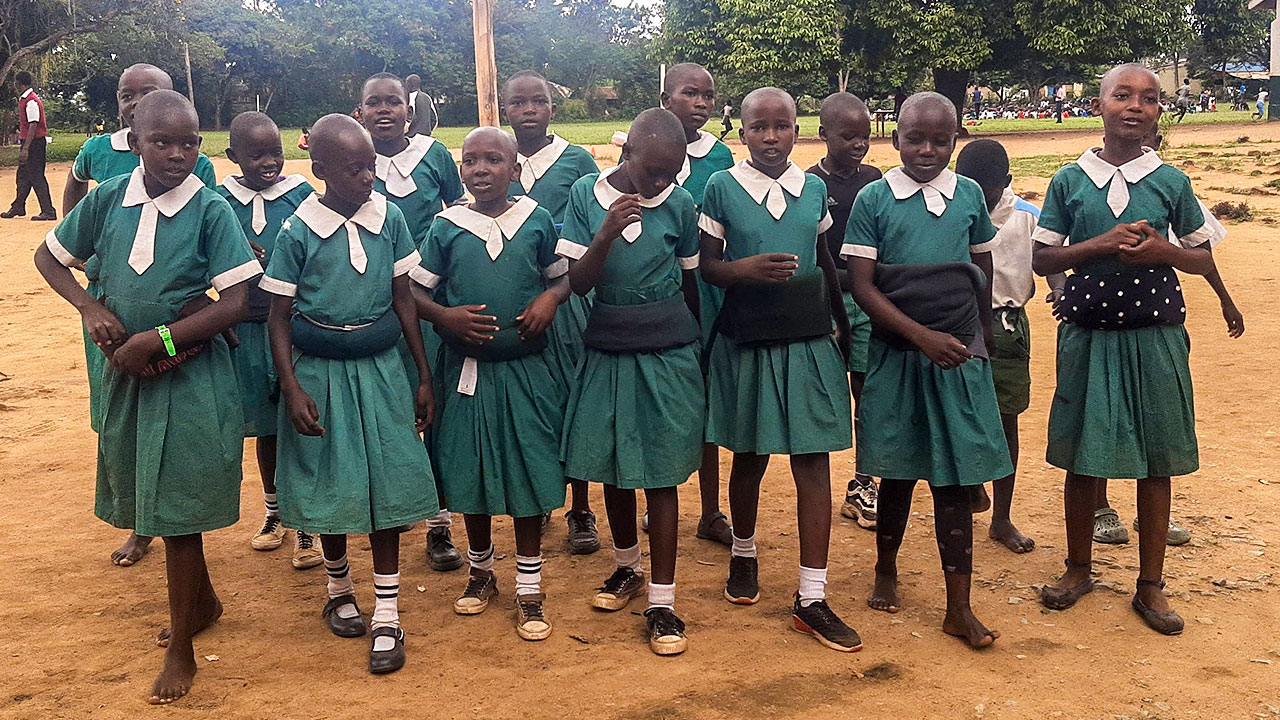Sports such as football, rugby and athletics play an important role in many African countries. Kenyan athletes have dominated running for years, and many footballers from North and West Africa play in Europe’s top leagues.
But despite the simplicity of these sports, they are often only accessible to a small proportion of the population. Even sports that require minimal equipment and infrastructure often fail because of external factors such as distance and lack of transport, neighbourhood crime or cultural concerns about gender boundaries. There is simply a lack of resources for sport, whether in the form of equipment, facilities or qualified coaches.
However, in regions where participation in organised sport is often limited for economic or logistical reasons, access to these opportunities is crucial.
Sport strengthens the personal development of children and young people, promotes concentration and also provides access to education through scholarship programmes, as in Kenya. Community sports programmes also serve to identify and nurture talent and provide a pathway for aspiring athletes.
A regular and organised sports programme, especially in disadvantaged areas, enables young athletes from diverse backgrounds to overcome barriers and demonstrate their abilities.
Physical activity and health ★ Teamwork and communication ★ Fair play and conflict resolution ★ Leadership and responsibility ★ Education and future prospects ★ Integration
Sport has the power to change the world. It has the power to inspire. It has the power to unite people in a way that little else does. It speaks to youth in a language they understand. Sport can create hope where once there was only despair. It is more powerful than governments in breaking down racial barriers. It laughs in the face of all types of discrimination.
Nelson Mandela

Sport promotes physical and mental development
Sport is often seen as a secondary consideration in education. Physical education in schools is not the norm everywhere. However, physical education not only develops physical skills and abilities, but also contributes to mental development.
Sport and physical activity help to manage stress, increase physical resilience and improve concentration. Sport motivates and trains strategic thinking.
Regular exercise improves physical health. Important motor skills, coordination and reflexes also lay the foundations for a lifestyle that can cope with adversity and build resilience, which has a positive impact on many aspects of life. Sport helps to improve and maintain general health. It acts as an antidote to an unhealthy and monotonous lifestyle and diet, which can lead to health problems such as chronic diseases in the future.
Sport builds social skills and creates a sense of belonging

Team sports such as volleyball, netball, football or rugby emphasise cooperation and communication. Playing in a team requires discipline, commitment and determination – qualities that are invaluable in all areas of life.
Gang crime is often more prevalent in poor neighbourhoods such as the townships of South Africa. Children and young people from these areas are particularly vulnerable to early recruitment into these anti-social structures. In the absence of leisure activities, gang structures provide a sense of belonging and mutual support. Team sports offer a sense of belonging, especially in these socially troubled neighbourhoods. They are a powerful tool for learning essential skills such as teamwork and social skills. Children and young people learn to trust their team-mates, to communicate non-violently under pressure and to work together towards a common goal.
These are skills that can be transferred to their families and friends, not just as interpersonal relationships. They are also the foundation for a successful school career and, later, a networked and collaborative future in the world of work.
Sport promotes discipline, respect and determination
Success in sport requires discipline, commitment and determination – qualities that are crucial in shaping a positive future.
In socially disadvantaged communities struggling with economic difficulties, drugs and gang crime, sports programmes provide a structured environment. Participants learn the importance of regular training, punctuality and setting realistic goals. They learn to follow the rules, accept the referee’s decisions and respect their opponents.
In a safe and supervised environment, children have the opportunity to resolve conflicts peacefully and learn the importance of fair play. They can learn leadership skills and take responsibility for their own actions on and off the pitch.
Encouraging children to perform well in sport while having fun also helps them in school and gives them better prospects for the future.

Sport fills educational gaps
Sports projects can also go beyond the sporting component.
In underprivileged communities where access to quality education is difficult, educational programmes can bridge this gap with the help of mentors and volunteers.
By combining sport and education, participants not only develop sporting skills but also receive academic support and guidance. In this way, sport becomes an effective tool for empowerment and opens doors to educational opportunities and a better future for participants.
Sport builds communities for social cohesion
In communities where social bonds in the family or at school can be strained by many negative influences, sport has a unifying power that creates a resilient and connected community.
The vacuum created by a lack of recognition and the desolation caused by a lack of alternatives is often filled by criminal gangs. Here, children and young people feel safe, heard and recognised. Discipline and the collective experience of supporting a local sports team, or attending games themselves, becomes an alternative that can fill this vacuum. It becomes a source of pride and identity, strengthening the fabric of a community. A connected community is more resilient and can tackle wider issues together.
Games and tournaments are not just sporting events, they are seen as cultural celebrations that bring communities together. Families and neighbours come together to support their children, building cohesion.
Economic barriers can also be broken down through support networks. Participants have to be transported and catered for, promotional material has to be designed and printed, people from different backgrounds have to work together to organise a tournament.
Sport breaks down gender barriers and social norms

Sport projects can create safe spaces where girls can participate without fear of discrimination or violence. However, religion, tradition and a lack of education often stand in the way. Therefore, close cooperation with local communities is needed to build trust and promote acceptance and opportunities for girls in the sports environment.
To encourage girls to participate in sports activities, it is important to involve female role models. These role models can inspire girls to follow their dreams and overcome gender stereotypes. Targeted mentoring programmes can build personal relationships that encourage girls to be confident and ambitious.
Female sports volunteers can also play an important role. Sports such as handball or netball, which are popular in Africa, offer opportunities to be active across gender boundaries. Through coordinated efforts and working closely with the community to promote inclusion, sports projects empower women and girls. They offer them opportunities to be physically active, develop specific skills and engage with the community.
By challenging traditional gender norms, sport becomes a catalyst for social change, promoting a more equitable and inclusive society. And by integrating sport activities into existing community events and structures, sport projects can ensure that girls are included and supported in the community from the outset.
Sport is more than just exercise. It is a catalyst for positive change in townships, slums and other deprived areas.
